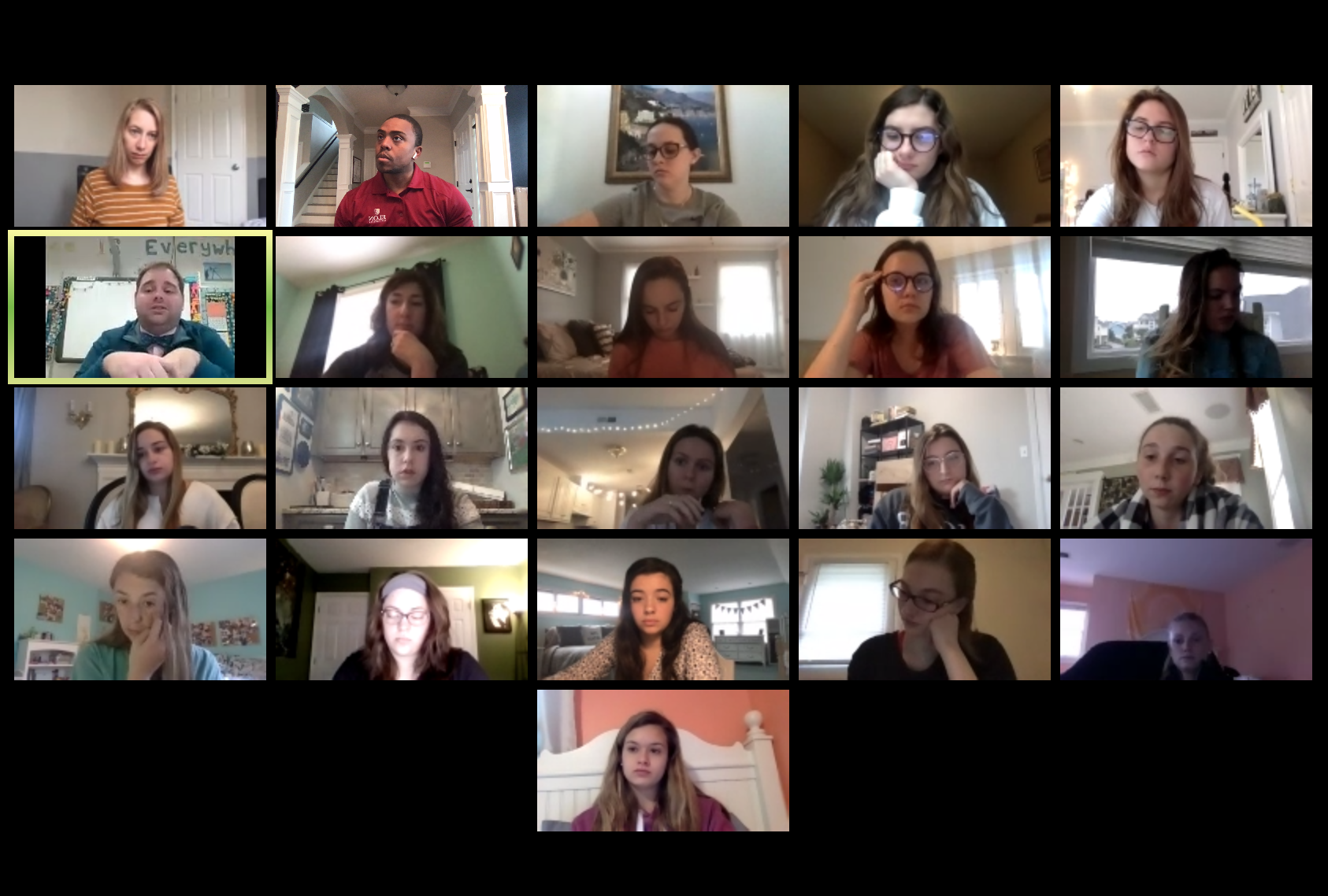As Elon students continue the semester online, education majors are getting firsthand experience in the flexibility it takes to be an educator.
The transition to online learning can present its fair share of challenges for students, especially for Elon’s education majors whose studies are heavily focused on working in physical classrooms.
But a disruption to their normal classroom routine has presented valuable lessons about what it really means to be an educator.
“Last semester we had a course all about technology in the classroom, and I feel like this a prime example of when it would be useful,” said Samantha Penny ’21, an elementary and special education dual major. “So seeing the different ways that teachers are navigating it is kind of reassuring to us that it is possible.”
She was one of several students to see those past technology lessons put to use on Wednesday. Penny is a student in Assistant Professor of Education Katie Baker’s EDU 412: Math and Science Methods course for elementary and special education dual majors. Students in Baker’s course joined elementary education majors in Lecturer in Education Erin Hone’s EDU 312: Math and Science Methods course for a virtual guest lecture on a video conferencing platform.

Both groups logged on to hear from Brad Rhew, the science lead teacher at Petree Elementary School in Winston-Salem, North Carolina. Rhew discussed his methods of incorporating hands-on learning into science lessons. Students had the opportunity to interact with Rhew via webcam, before breaking out into smaller virtual groups to further discuss the topic with classmates.
Rhew, who visited with students in the fall, planned to return for an in-person guest lecture during the spring semester before the spread of the novel coronavirus 2019 (COVID-19) forced a change of plans. Instead of canceling the visit all together, Baker and Rhew found a way to carry on with the lecture virtually, teaching students an important lesson about resilience in the classroom.
“This to me is prime time to really show future educators how flexible you have to be as a teacher and how quickly you have to think on your toes to still reach your students,” Rhew said.
Students say the chance to continue taking advantage of Elon’s experiential learning opportunities – even if virtually – has been invaluable in the early days of the university’s online learning transition.
“I really appreciate the calls, specifically throughout this whole process, because I still am able to have back and forth conversation with my peers and with my professor and bounce ideas off of one another instead of just taking it all onto myself,” said elementary and special education dual major Carolee Wagner ’21.
Baker, who called the group’s first virtual meeting on Monday a “joyful reunion,” says a shift online meant first finding out what students needed in and out of the classroom to make the transition smooth and successful for each person.
“I feel my job as a professor and instructor is to find out individually what each student wants out of this time. First, where are their needs at,” Baker asked. “Making sure I can get a pulse on how they’re feeling, what they need, that makes a big difference when you can actually see them in person.”
So Wednesday’s lesson wasn’t only about carrying on in the classroom, but also about showing what it means to truly care for students and their needs, says elementary and special education dual major Remy Lawson ’21.
“I think also taking that mindset and applying it to the future as a future educator, knowing that your students may need different things, they may expect different things out of your class and being able to fit their needs in all of those ways is really important,” Lawson said.



